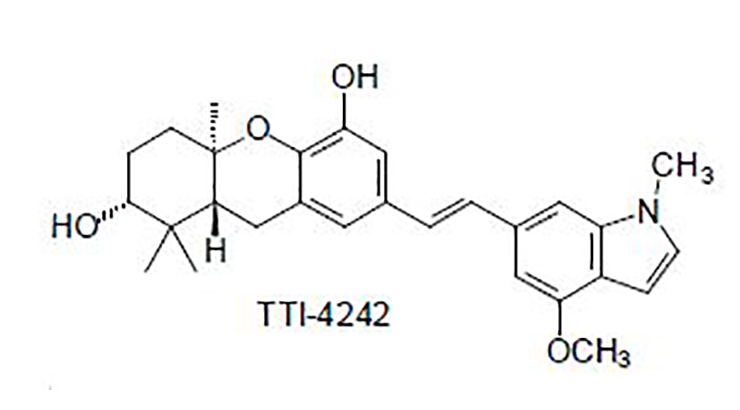Synergy of Schweinfurthins with Anti-PD1 Immunotherapy for Melanoma
ID# 2018-4724
Technology Summary
Immune checkpoint inhibitors (ICIs) are undergoing rapid expansion due to growing clinical evidence demonstrating the effectiveness of these agents to improve outcomes for a subset of patients with several difficult to treat and advanced cancers. An adjuvant treatment that would expand the utility of these drugs to treat additional patients would find widespread clinical use. Researchers have demonstrated improved tumor immunity using a novel, small molecule in combination with an anti-PD-1 ICI in a melanoma mouse model where immunotherapy alone fails. The lead compound has potent ICI synergistic effects using a fraction of the maximum tolerable dose administered in short durations without any apparent toxicity.
Application & Market Utility
Melanoma of the skin has the fastest growing incidence rate of all cancers. The annual number of new melanoma cases is slightly over 100,000 in the U.S. and 300,000 worldwide. ICIs are the standard of care for metastatic melanoma. However, despite the tremendous success of ICIs in improving outcomes in advanced-stage cancers, response rates are ~40%, and significant immuno-related side effects occur. New synergistic products are in demand to increase immune response and reduce toxicity.
Next Steps
Key next steps include: confirm efficacy, tolerability & PK in vivo; validate in vitro tox screen; complete synthesis of 5-10 gram batch (non-GMP); rat and dog dose-ranging & PK studies. Patent pending.

